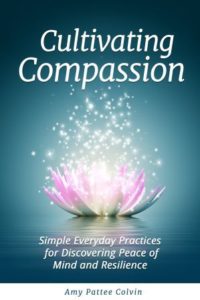Have you ever experienced the frustration that arises from unmet expectations—perhaps it was a work project that didn’t go how you wanted, a strained relationship, or a personal setback? At one point or another, all of us have.
An antidote to this frustration is intentionally practicing acceptance. Acceptance, in this case, doesn’t mean agreeing with an outcome, but it means not fighting against something that is. Freedom from frustration comes when you choose to release expectations and judgments; this choice often leads to a sense of liberation and ease, reducing disappointment and stress.
A very dear friend of mine recently passed. One of the things we loved about our friendship was that though we held opposite life experiences, spiritual paths, and political outlooks, we both believed in the innate potential for good in all people. We both valued curiosity and would often say to each other, “Help me understand your point of view…”
I learned about geopolitics from him, and he learned about Taoist philosophy from me. We could talk about various topics on which we held different perspectives because neither of us needed or expected the other person to change the existing opinion. Neither of us judged the other for having a different point of view. We accepted each other unconditionally, even if philosophically we disagreed.
How to Be More Accepting of Others
Now, bring the above idea into your own world. Imagine a family gathering. Each person present is unique, and all of you have opinions about a particular topic, and not everyone shares the same perspectives. Imagine holding fast to your ideas with a desire to convince other people of your convictions—confident that your perspective is the only right one.
Imagine others behaving the same way. In this instance, the family gathering may be fraught with tension, fueled by unspoken expectations about what others should believe, judgment for others in their beliefs, and disappointment that you can’t sway others to your point of view.
Now, imagine this same family gathering, but this time, you choose to release your expectations of how others believe. Instead of trying to convince others that your perspective is right, you are curious. You ask questions with the desire to deepen your understanding of someone else’s beliefs.
Imagine saying with open-hearted curiosity, “Help me understand what you’re thinking here.” Give the other person the space to explain themselves, then thank them for sharing. Withhold your perspective unless it is asked for.
Then, embrace the present moment, savoring the company of loved ones. The result? A peaceful and enjoyable gathering where you may have learned something new as you ask others to explain their perspectives. You’re free from the stress and disappointment that had marred previous occasions.
By releasing expectations, being curious, and accepting others without judgment, you can free yourself from unnecessary stress and cultivate a more peaceful and fulfilling life.
The Essence of Expectations and Judgments
Expectations and judgments often result from a complex interplay between internal and external factors. Your past experiences, cultural norms, and personal beliefs shape them. They can be conscious or subconscious—weaving themselves into your thought patterns—and understanding their roots is a valuable tool for releasing them.
At their core, expectations and judgments are rooted in a desire for control, a longing for predictability, and a fear of the unknown. Psychologically, they develop when you anticipate future events based on past experiences, beliefs, and desires. While they can be useful for planning and decision-making, excessive expectations and judgments can lead to disappointment, frustration, and even resentment.
From childhood, you are showered with messages about how you and others should behave and what you should achieve. These external pressures sometimes lead to unrealistic expectations for yourself and others.
It’s empowering to recognize that expectations and judgments are often based on assumptions rather than facts. You may assume that people will behave in a certain way or that things will turn out as you hope. However, the reality is rarely as predictable as we would like.
Understanding the underlying essence of expectations and judgments is the first step to finding greater peace. It empowers you to challenge unrealistic, limiting, or harmful perspectives so you can cultivate a more accepting and compassionate mindset toward yourself and others. This understanding puts you in control and boosts your confidence.
The Impact of Expectations on Relationships
Expectations sometimes cast shadows over personal and professional relationships.
When you hold expectations for how others should behave or pass judgment on how situations should unfold, you set yourself up for disappointment and conflict.
In personal relationships, expectations and judgments may create tension and misunderstanding. For instance, if you expect your loved ones to read your mind or be available at a moment’s notice, you may feel hurt or resentful when they don’t meet your needs. This can lead to arguments, misunderstandings, and a breakdown in communication.
Similarly, in professional relationships, judgments may hinder productivity and collaboration. If you expect your colleagues to always agree with you or to work at the same pace, you may inadvertently create rifts in the work environment. This can lead to decreased morale, increased stress, and decreased overall job satisfaction.
To cultivate healthy and fulfilling relationships, it’s crucial to release rigid expectations and judgments and embrace flexibility, understanding, and acceptance. This approach helps you connect with others more deeply, fostering empathy and stronger bonds.
The Role of Expectations in Self-Perception
Expectations and judgments don’t only apply to other people or situations. Your expectations for yourself and your self-judgment may significantly affect your self-perception and overall well-being. When you hold high expectations for your performance, appearance, or behavior, you may set yourself up for disappointment.
If you constantly strive for perfection, you may find yourself feeling inadequate or unworthy. This can lead to low self-esteem and occasionally to a sense of depression or anxiety. All humans make mistakes; it’s okay to be imperfect.
By practicing self-compassion and accepting yourself for who you are, you can cultivate a healthier relationship with yourself. This involves recognizing your strengths and weaknesses, setting realistic goals, and celebrating your accomplishments, no matter how small.
The Power of Curiosity
Asking questions open-heartedly and open-mindedly is an effective tool for releasing judgment and navigating life’s complexities.
When you approach people and situations with curiosity, you’re more likely to see things from different perspectives and develop a deeper understanding of others.
Instead of assuming you know what someone is thinking or feeling, ask questions and actively listen to their responses. This may help you build stronger connections with others and resolve conflicts more effectively. I created a guided meditation, Listening as a Humility Practice, on this topic for Insight Timer.
Curiosity may also help you learn and grow. By exploring new ideas and experiences, you can expand your knowledge and broaden your horizons. So, the next time you encounter something unfamiliar, embrace your curiosity and see where it takes you.
Practical Tips for How to Let Go of Expectations and Cultivate Acceptance:
Releasing expectations and judgment is often a challenging but rewarding process. Think back to your imagined family gathering. Visualize how much more fun and joyful the get-together is when people are curious and accepting rather than judgmental.
Here are some practical tips to help you embrace a more peaceful, accepting, and fulfilling life:
- Self-Awareness: Regular self-awareness practice may help you better understand your thoughts, feelings, and expectations. Do your best to observe your thoughts without judgment. Intentionally and kindly begin to let go of negative patterns and open your heart with curiosity.
- Be Realistic: Instead of setting your goal bar so high you, or others, will never reach it, put it at an achievable height. Create opportunities for success, and it will reinforce positive action. Eventually, that high bar or difficult goal might be met, but take attainable action steps to help you achieve your ultimate goal.
- Cultivate Compassion for Self and Others: Treat yourself with kindness and understanding. Treat others with kindness and understanding. All humans aspire to love, be loved, and be valued and acknowledged. Consider saying for yourself, “May I be happy. May I find peace and joy.” Then say for others, “Just like me, may you find happiness, peace, and joy.”
- Practice Gratitude: Focus on the positive aspects of your life, such as your relationships, health, and accomplishments, and express gratitude for them. Gratitude often helps you shift your perspective and appreciate what you have. Try looking at yourself in a mirror and saying aloud, “I really appreciate___ about myself.” (You get to fill in the blank.) Notice how it feels in your mind, heart, and body as you say this to yourself.
Intentionally incorporating these practices into your daily life helps you gradually release potentially harmful expectations and cultivate a more peaceful and fulfilling existence.
By practicing acceptance and curiosity while releasing expectations and judgment, you may transform your relationships, improve your self-perception, and experience greater peace and fulfillment.
You have the power to create a more harmonious and joyful existence by intentionally aspiring to self-compassion and accepting yourself and others for who they are.
If you’d like to learn more about how to let go of expectations and how to be more accepting of others and yourself, join my upcoming BodyMind IntelliSense or Compassion Cultivation Training program, or join me for an International Spiritual Tour where we’ll time daily practicing compassion meditation, qigong, and tools to create a positive mindset while exploring beautiful landscapes and fascinating cultures.










